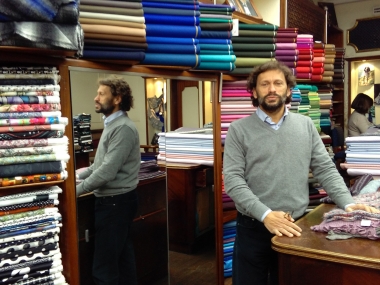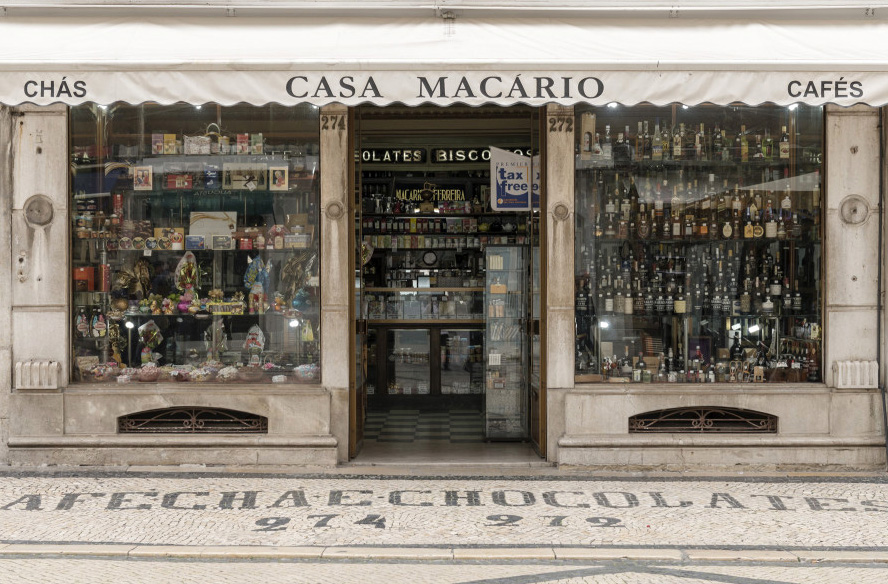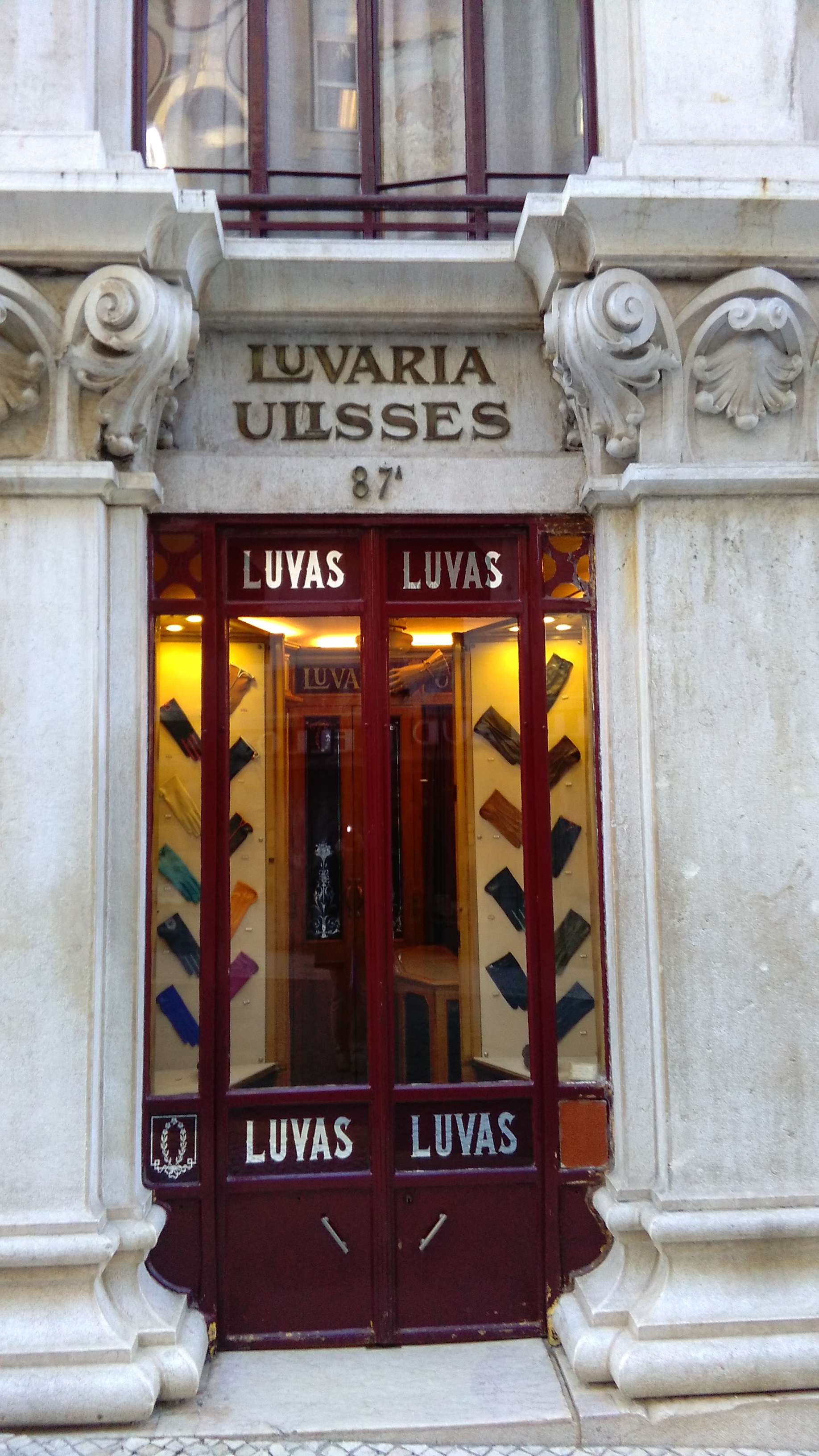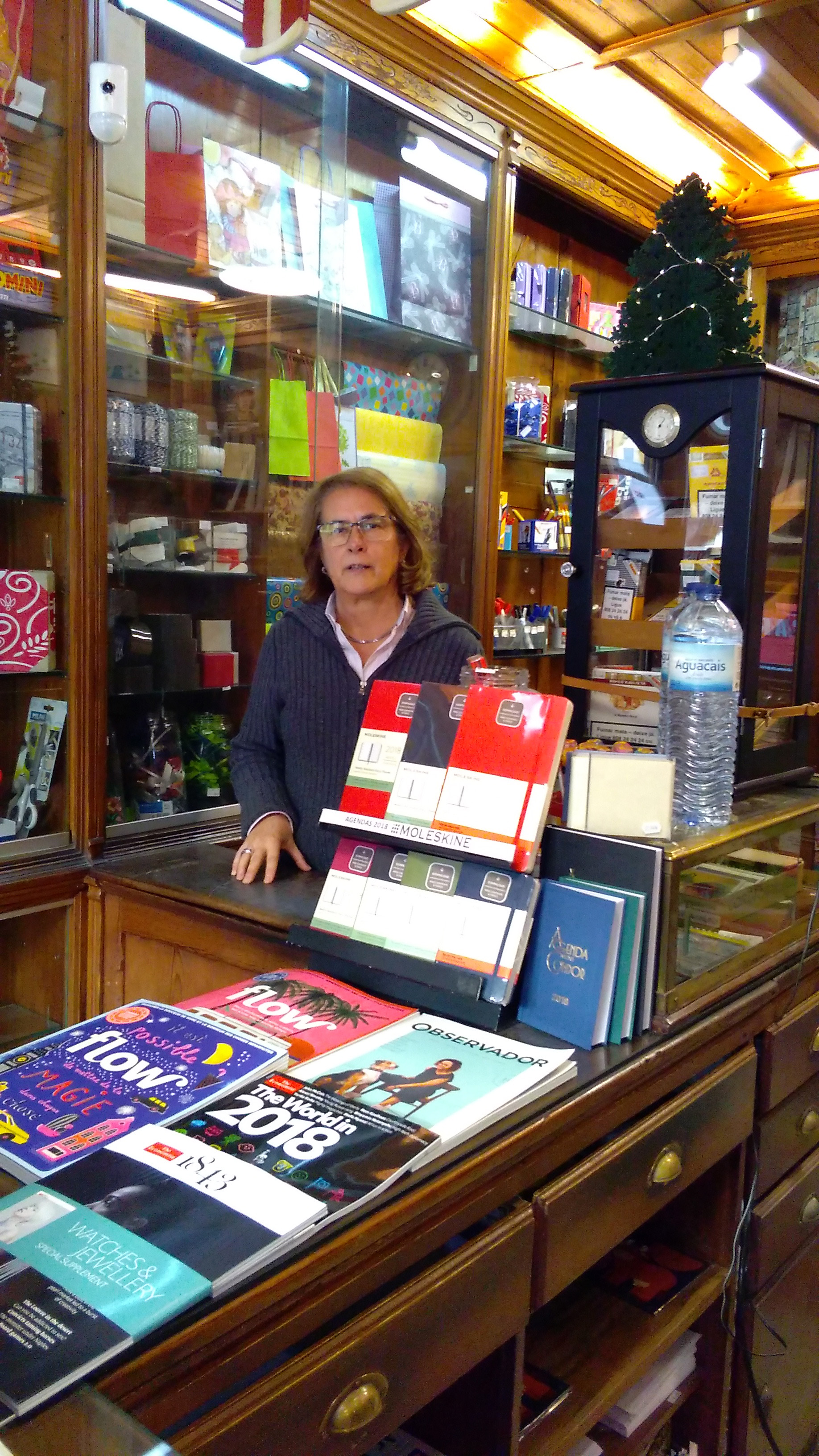Making a difference with tradition
Edited on
03 July 2019An Award to Historical shops to preserve Lisbon’s uniqueness.
'Shops with a history' is a municipal programme awarding and supporting shops whose historical and cultural heritage contribute to the city’s identity. To date 82 shops have received a distinction. Here we are taking you through the key point of the programme, an URBACT Good Practice and taking you to visit and discover (his)stories of 4 of these shops.
Commerce: one of Lisbon’s development historic pillars

For over two thousand years, commerce has played a crucial role in the economic, social and cultural life of the city of Lisbon (PT), located on the Tagus River estuary. In fact, its privileged location has favoured the settlement of various people in the country’s most populous city. In addition, because of its strategic location, it has become an important commercial port due to the logistics chains of international commerce and the cruise ships circuit.
Because commerce is one of the pillars of Lisbon’s development, traditional local shops have always contributed to defining the distinctive character of the city. However, these commercial establishments are at risk of disappearing due to the threat posed by large urban real estate developments in the city´s centre and the development of large commercial establishments in the city’s perimeter, not to mention the ageing of their owners or tenants, which tends to lead to the abandonment of this activity.
In 2015, Lisbon City Council created the Shops with a History programme in order to stop this trend. The programme’s aim is to preserve and safeguard traditional establishments that give the city a specific trademark, while also invigorating its economic activity and revitalising its economic and social fabric.
Awards to historic shops and restaurants to help them build their future
By launching the Shops with a History programme the municipality is not only contributing to preserving the city’s identity and image, but also fighting against real estate speculation and unregulated increases of commercial rent.
The programme protection measures to the identified commercial establishments, including tax benefits or exemptions for the owners of the buildings and the pre-emptive right of purchase for tenants upon sale of the buildings.
‘Shops with a History’ involves three departments of the municipality of Lisbon: Economy and Innovation, Culture, and Urbanism. It is directed at traditional commerce and its position as a distinctive characteristic in the city’s economic activity. It also has a very significant impact on local employment.
The innovative character of the programme largely resides in the creation of a working group, including the technicians of the various services of the municipality involved in the process and teachers and staff of the Fine Arts Faculty of the University of Lisbon. This university has contributed to creating the visual identity of the programme and has participated in defining the distinction criteria and their application in the field.
An Advisory Board was created to collaborate with this working Group involving representatives from associative, business, cultural, academic and civil society sectors, and they are called upon to decide on the most important steps of the programme, namely the shop selection process.
The final decision on attributing awards proposed by the Advisory Board is made by the municipal executive. It is preceded by a period of public consultation. Recognition is valid for a minimum period of four years, renewable if its pre-requisites remain in place.

82 shops and restaurants awarded the ‘Shop with a History’ Label
Lisbon’s historical centre is at the core of the programme, more precisely the Baixa-Chiado district where most of the establishments that need to be preserved or safeguarded are located. However, it has been extended to other parts of the city.
Lisbon City Council has already distinguished 82 commercial and restaurant establishments, following a period of intense work involving research and field work by the Working Group.
A further 125 proposals for distinction have been submitted by businesses and/or members of civil society. New distinctions will be made in accordance to a new specific national legislation published in June 2017, regulating the recognition and protection regime for establishments and entities of historic and cultural or social-local interest (Law no. 42/2017 of 14 June).
The evaluation criteria are the commercial activity, material assets and cultural and historic heritage. As regards commercial activity, the following factors are considered: recognised longevity, significance to local history, identity aspects and the fact that they are unique in terms of the activities they carry out. Material assets take into account both artistic heritage (architecture, decorative and furniture elements, artistic elements, namely works of art) and the respective real estate property. The elements that contribute to cultural and historic assets are less concrete, but still relevant: its existence as a local landmark, the need to safeguard intangible heritage and the need for its promotion.
Some of these establishments manufacture their own products, often in locations adjacent to the points of sale or very close to them. These are small workshops that have survived out of sight of the customers.
The municipality has created a municipal fund which contributes to the costs encountered by the shops in three areas: maintenance or restoration of facades or architectural and decorative elements, commercial invigoration and cultural initiatives. Rents paid by shops are protected against uncontrolled increases for a period that is longer than normal.

A participative programme
The recognition of a shop is prestigious for all parties: the merchant sees the interest in his or her commercial establishment grow, the landlord sees the value of his or her property increase and the city preserves its identity. In November 2017, an eponym book was launched. It is illustrated with photographs and other visual materials depicting the shops that have been distinguished until now. At the time of the launch, the Mayor of Lisbon Fernando Medina stated: “What is at stake in this programme is not a museological reality, but rather an investment in a living future, undertaking the difficult balancing act between preserving heritage and maintaining economic vitality, adding density to the programme."
An exhibition also allowed us allows us to discover a “Lisbon that is colourful, alive, rich and very unique. It is a tour through the shops that tell the story of Lisbon, shops which through their architecture, decoration or the products that they sell, reflect the era of the monarchy, the first years of the republic, times of great difficulty or times of prosperity. They also bear witness to the social, aesthetic and political movements that created them, and in some cases these movements were even born within these shops” (excerpted from the introduction to the exhibit).
A transferable Practice
The municipality was awarded one of the 97 URBACT Good Practice labels. Its presentation in Tallinn at the URBACT City Festival raised a significant amount of interest from other participating cities, as Sofia Pereira, programme coordinator, explains : “We received various manifestations of interest in the sessions we participated in Tallinn, some of which directly from the cities present at the Festival, others from the respective National URBACT Points.”
This label was a reward for the strong investment by the city of Lisbon (this includes politicians, technicians, merchants, academics and members of civil society) in a traditional activity sector with a strong impact on collective experience.
Now, follow us and discover with us four of these emblematic shops .
Luvaria Ulisses (in Lisboa Vaidosa, exhibit)
It was not yet 10 a.m., opening time, but already several foreign customers were waiting for Luvaria Ulisses to open its doors. In fact, most of the purchases made at this shop, unique in Portugal and one of the few that are left in the world, are made by passers-by who became aware of the shop through city guides.
 The shop is extremely small, namely 6 m2, which means customers have to line up on the street. It is located on the blind spot of Muralha do Carmo, near the Convento do Carmo, a building that is of municipal interest, giving it a unique characteristic. Because the State owns the building the tenant is not under as much pressure from speculative rent increases.
The shop is extremely small, namely 6 m2, which means customers have to line up on the street. It is located on the blind spot of Muralha do Carmo, near the Convento do Carmo, a building that is of municipal interest, giving it a unique characteristic. Because the State owns the building the tenant is not under as much pressure from speculative rent increases.
This commercial establishment exclusively manufactures and sells leather gloves. The shop was founded in 1925 and the current owner/manager would like to maintain this business for many years to come. According to Carlos Carvalho, in this business for 42 years, his biggest challenge is expanding the workshop where the gloves are manufactured. He needs to hire and specially train more seamstresses, which is not always easy.
There are apparently two essential reasons that have caused traditional shops to lose customers in the past years: the moving of head offices of banks and government ministries to other parts of the city and the establishment of shopping centres in the surrounding areas. Fortunately, the influx of tourists has offset this loss.
Customers are given personalised service whereby the employee helps the customer try on the gloves, following the usual ritual that includes using wooden tweezers to open the glove, sprinkling of talcum powder inside the glove, trying on the glove and lastly, removal of the talcum powder with a small brush. Between manufacture and sale, the business employs five cutters, six seamstresses and two shop employees.
From Luvaria Ulisses, located on Rua do Carmo, we move on to the next shop:
Londres Salão (in Lisboa por medida, exhibit)
This is one of two remaining shops that are entirely dedicated to selling textiles, located in the most important commercial artery of the city’s downtown area, namely Rua Augusta.
Londres Salão began its commercial activity in textiles in 1950, even though it already existed under the same name in 1911 in the tailoring business. The shop has since been managed by the same family, which thirty years ago added a young member trained in Management who had the wherewithal to adapt to the winds of change and guide the business toward a more sophisticated clientele who wants custom-made clothing that is different from the clothing found in ready to wear shops.
Proof of this is that more and more tourists have visited (Russian, Angolan, Brazilian, among others), people with money, but who maintain traditional habits and who purchase textiles here to bring back to their countries, where it is still possible to easily find seamstresses and tailors.
José Quadros, the current manager of the firm, believes that the programme Shops with a History makes a lot of sense because it helps in some way stop the imminent shutting down of these traditional shops. However, he believes the programme should also take into account benefits to the landlords where the shops are located, in order to dissuade them from undertaking eviction measures.
In the case of Londres Salão, the landlord of the building tried to evict them, offering them six months and 500 hundred thousand euros to leave the building. This is where the benefit of the programme came into action, nullifying the eviction measures.
A curious event took place with this shop when Queen of England Elizabeth II visited in 1957. As part of the visit, the Queen walked around downtown Lisbon in the Baixa district and suddenly stopped at the shop window of Londres Salão. What could it be? The shop was displaying replicas of the English crown jewels for the festive occasion.
Right across from Londres Salão there is
Casa Macário (in Lisboa Gulosa, exhibit)
This shop was founded in 1913 by an Africanist with coffee plantations in Angola. At the time, the establishment was exclusively dedicated to selling tea and coffee, roasting, grinding and preparing its own products, originating from former colonies. This type of business was so significant that some 30 shops of this type operated in 1980 (today there are only seven).
Casa Macário was subsequently sold and the current landlord has directed his main interest to the wine sector, while still maintaining an interest in other products. Here, port wine is king. As the current owner Luís Torres told us, his shop offers port wines from any year from 1900 onward and they can be tasted at the shop.
The clientele is currently mostly foreign with many customers arriving on the numerous cruise ships that dock in Lisbon. Some of them come several times in a year and they ask if the shop still has “that wine” that they purchased last time. As regards national clientele, which was once the majority, it was mostly made up of lawyers and politicians who had their offices in the area.
Luís Torres recounted an interesting story regarding the recent visit of a Russian tourist who entered the shop and asked for the most expensive port wine in the shop and opened the bottle right then and there. Wanting company for his drink, he called over some American sailors who were passing by on the street and together they drank the entire bottle in the early morning hours.
In the case of Casa Macário, rent is not an issue, seeing as the building where the shop is located is owned by the shop owner and he proudly states: “Casa Macário is part of the downtown Baixa heritage.” It is this feeling of belonging that allows one to resist common and significant offers to shut down a traditional activity.
The last shop we visited is located in the Chiado district and is an interesting example of an establishment that has maintained almost entirely intact the characteristics it had when it was first inaugurated.
Tabacaria Martins (in Vícios de Lisboa, exhibit)
This shop, established at the end of the 19th century, sells tobacco, newspapers, magazines and more recently, stationary products. Another aspect of the business is lottery ticket sales, which Tabacaria Martins pioneered. In fact, the shop still has a small wooden cabinet with small drawers that regular customers use to keep their tickets.
If there is an establishment that has remained open today thanks to its distinction in 2016 under the Shops with a History programme it is Tabacaria Martins. In fact, in the beginning of 2017, the owners were notified that the building where they are located had been sold and as a result they had to leave the premises.
News spread quickly among its customers and in order to create awareness about the problem they brought it to the attention of the media. The Deputy Mayor of Lisbon also intervened personally getting involved in resolving the dispute. The threat of closure generated an enormous uproar with many articles published in the press and social media. A large amount of people and organisations called for the shop to stay open. The new landlord ended up drawing up a ten year lease.
Ana Martins, currently responsible for the shop, points to the benefit of the programme in defending the shop, but believes the programme should be promoted more in order to avoid situations similar to the one that her shop went through. She suggests greater involvement of the Union of Merchants Associations of the District of Lisbon in these disputes involving the owners of buildings where shops are located.
It should be pointed out that the National Assembly and the National Conservatory are located near the shop and it was always frequented by politicians and artists who would often stop by to chat. This shop with over one hundred years of history has truly been a family business for three generations.
Thus, we have concluded our visit to four traditional shops, each operating in its own sector of activity. All the owners were very clear that they wanted to keep their businesses up and running, but they are aware that without collective awareness on how to preserve this irreplaceable heritage, resolution of the problem may be delayed, but it will in fact not be resolved. Let us hope that the Shops with a History programme can continue to call attention to the need to preserve these shops and that it will create awareness among landlords. The city of Lisbon thanks you!
You can also see the video of the Shops with a History programme here (click on "Watch Video").
Submitted by Ana Resende, Portuguese URBACT Point, on 5th January 2018
 Submitted by Ana Resende on
Submitted by Ana Resende on




